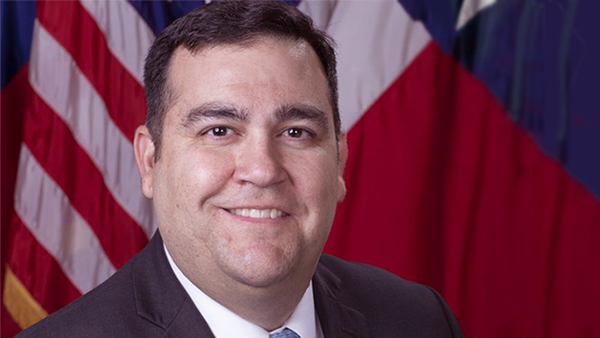- Sections :
- Crime & Public Safety
- Restaurants & Food
- Sports
- More
The Outlaw Ocean Music Project Blends the Mediums of Journalism and Music

THE WOODLANDS, TX – 430 musicians from 80 countries turned a reporter's work into song.
The Outlaw Ocean Music Project Explained:
Expert provided by theoutlawoceanmusic.com
“In convening hundreds of musicians from dozens of countries around a shared artistic goal, this project is meant as an act of solidarity across geographies and languages. It is also an attempt at an alternative form of storytelling and an experiment in translation from the written word into music. On the simplest level though, this is simply a captivating collection of inspired songs, which range from electronic and ambient to classical and hip hop.
All of the music is based on The Outlaw Ocean, a New York Times Best-Selling book by Ian Urbina that chronicles lawlessness at sea around the world. This reporting touches on a diversity of abuses ranging from illegal and overfishing, arms trafficking at sea, human slavery, gun running, intentional dumping, murder of stowaways, thievery of ships and other topics. While reporting for more than 5 years at sea, Urbina built an audio library of field recordings. It featured a diversity of textured and rhythmic sounds like machine-gun fire off the coast of Somalia and chanting captive deckhands on the South China Sea.
Sampling these field recordings and using recorded passages from the book, the musicians sought to capture the emotions in this journalism, while also raising awareness about the dire need to protect this offshore realm and the millions of people who work out there.
A portion of the music’s revenue goes toward funding more of this ground-breaking reporting.”
Q&A with the author Ian Urbina:
What inspired you to write The Outlaw Ocean? It was obviously a huge undertaking seeing that it took six or seven years to report.
“I was an anthropologist before joining the New York Times, so I knew there to be pretty epic stories and characters out there … and not a whole lot of story telling, so I convinced my editor to let me go out and chronicle the space.”
What is the book about?
“It’s a book that sort of explores a frontier, if you will, that happens to be the high seas generally and offshore realm … it focuses on lawlessness in its various forms offshore, almost an anthropological chronicling of the kinds of characters and behaviors that you find out there.”
The idea behind The Outlaw Music Project is so unique, how did it come about?
“I’ve kind of always harbored this desire toward storytelling with music … a lot of the music I listen to is often soundtracks - Max Richter and Hans Zimmer and these sorts of composers who create music that's really emotional and dramatic and captivating. Normally it's scored in partnership with a specific scene, but I listen to it having never seen the movie and quite enjoy it. I'd always been interested in the idea that music in your own head can tell a story.”
How does the music project work?
“The music project is not just music that's created, inspired by the stories, but it's also music that's born organically from the actual sounds from the reported footage … These original ingredients are put at the disposal of the participating artists who make some music that corresponds with the reporting. Then we pair the album with footage … it's this massive thing with 430 musicians from 80 countries.”
How were the musicians chosen?
“In the beginning I was just going to my Spotify playlists. Finding artists that I listen to, and to my ear seemed like they would get the concept and probably blossom in it. And then, as the project grew, those artists introduced me to other ones and word got out and artists started coming to us … It kind of grew in all directions, and now it continues to grow.”
What is your hope for The Outlaw Music Project?
“The artists are bringing their audience to this subject matter in a fresh way. These are listeners who might not otherwise be accessible - young people who don't necessarily read newspapers or magazines. They consume news through comedy or YouTube or social media or music. So, by partnering with musicians, we access their listeners. We expose them to the notion of these sorts of concerns through these songs, and then the curious subset of those listeners start looking further and that is the slippery slope, if you will, that we hope will lead them into the subject matter. So far it's been working.”
Q&A with participating musician ‘PhuturePhil’, a Houston-based Multi-Genre DJ and Producer:
How did you become part of The Outlaw Ocean Music Project?
“My manager got an email from Ian, and he was like, ‘hey, this is not spam, I have a project that you might be interested in for PhuturePhil. And I was very skeptical, I was like, it's spam, they're trying to steal my information, delete it. So my manager decided to follow up with them, and they actually had a two or three hour phone call and met up in DC because that’s where they both live. After that, I was like okay we need to check out this project and see what it's about.”
What was your creative process like?
“It was a very different thing because usually I'm used to using my limited tools and the things that I have purchased and own. You have to be careful with music you sample and when you use audio sources that you don't have the rights to … It was very nice to actually have a bunch of high quality source material that I was allowed to use in any way I saw fit. It adds a whole different level of creativity when you don't have to worry about sample cleanse … Ian gave us his entire library of work that he accumulated to pick through, and complete creative freedom to just go. He basically wanted us to take the journalism and translate it into another medium, how we felt and how we interpreted it. It was very liberating.”
What chapter(s) did you choose to base your music off of?
“[Ian] didn't assign a specific part of the book, we got to pick whatever spoke to us … I chose chapter one. It's about Sea Shepherd, a vessel that goes around and basically hunts down rogue ships and ships in violation of international waters. The ship was basically a volunteer mission, it wasn't sponsored by any government or anything. So there were lots of questions and calls about whether or not they were like vigilantes and whether or not it was illegal for them to do what they were doing. I thought that was a very interesting kind of dilemma.”
“The second chapter that spoke to me when I was forming the EP is called Somali Seven, it’s chapter 14, and this chapter was crazy. In it, Ian basically gets stranded in Somalia, with his photographer, because the guide they hired lied about his resume just to get the job. It turned into a whole mess … He was there to investigate this trend, that for the past couple of years, every time the government hires a security force to police the waters, the security forces end up becoming like the pirates. And so it just keeps going around and around in a circle. It was like a never-ending spiral of good intentions mixed with corruption, becoming an awful thing.”
How many songs did you create?
“Eight in total on the EP. Five original mixes and three instrumental versions.”
What does music mean to you?
“There’s not really one feeling or style of music. It's very versatile and it's not constrained to anything. It can change based on how you’re feeling that day or what you've been doing for the past six months or the last week. Your travels, your school, your friends and family, relationships, all of that impacts your musical output. And I think that's honestly awesome and beautiful, because we all are a sum of our experiences as people, so being able to put that out there in a tangible form, to kind of share your experience with other people, I think is something really, really powerful.”
Find which platforms are streaming PhuturePhil’s music at his website, phuturephil.com.
To explore The Outlaw Ocean Music Project further, click here.

















